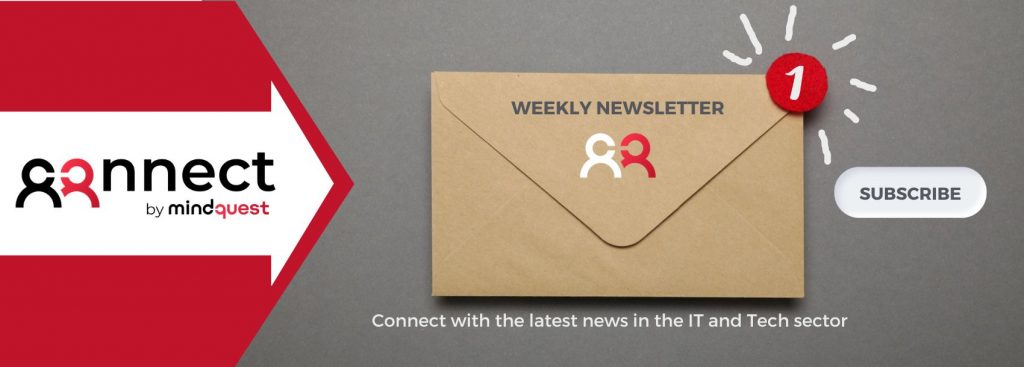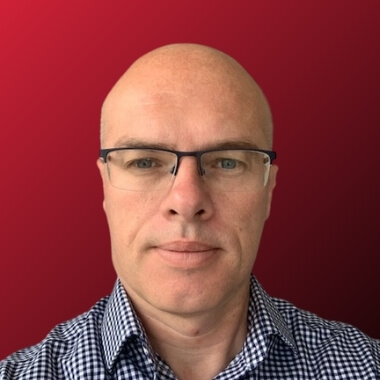Andy Jones is a London-based Microsoft Technical Architect working for BT Enterprise. He writes about modern desktop solutions on his blog Move2Modern and is a co-creator of the Cloud Management Community YouTube channel.
He recently sat down with us to talk about the work he is doing helping the endpoint management community and share some tips for those just getting started.
Interested in Microsoft cloud? Here’s how you can become an Azure MVP.
How did you get started in tech?
I didn’t start off down the tech route, to be honest. I wanted to be a quantity surveyor but ended up decided to make a move and do an MSc in computer science. Then, on the back of that, I got offered a position for coding, and I went to a bespoke development house. And that role basically put me on the road. I was going from place to place and basically living in different towns, spending a contract here and a contract there. Coding banking systems, mainly.
And, while I was doing that job, a company I was doing some work for picked me, and it was a good position back in central London. And I was kind of living there at the time, my mum was quite ill. So, it served a purpose, and I decided to jump ship. And I’ve worked for them ever since. I’ve actually been here for quite a few years, like 25 years or so.
Why did you end up not going down the quantity surveyor career path?
The time in which I graduated wasn’t a good time in the economy, I was finding it difficult to find a job, so I decided to go back into education.
And I’ve actually got a twin brother who’s always been into engineering, and he already had a job. He’d been through university, and, funnily enough, he works for the same company as me. We reached a point where people confuse us. He lives in a different part of the country to me, but I’ve had people in America come up to me thinking I’m him and what have you. But he’s always been technical, and I kind of followed his lead a little bit and we kind of do fairly similar stuff now.
What do you do these days? What does your job involve?
In theory, I work within the pre-sales team, but my specific unit is pretty small, so I get involved with basically talking to the customers with our account teams picking up the requirements for modern management type solutions, largely Windows devices but it also might be iOS or Android. And then I take that requirement, put it into a proposal and that goes back to the customer. And then, if and when we win, I lead the engineers, assigning engineers to that project and overseeing it. In some instances where we don’t have the resources, I implement the solution myself as well.
So that’s why I like to keep technical. I don’t like to be in front of customers and not know what I’m talking about. You know, it’s a bit like going to an electronics store and asking someone about this latest TV and they don’t have a clue.
You need to know what you’re talking about, so I improved my skills and learn many things, hence the creation of a YouTube channel to participate in the community.
Let’s talk a bit about that. You are the co-founder of the Cloud Management Community YouTube channel, which focuses on the modern management of end-user devices and identities using Microsoft’s cloud. How did it all start, what prompted you to begin this adventure?
I started this community around about seven months ago or something like that. I started it with a colleague who worked with me at the time, and it was during the lockdown period. Everyone was online. Everyone was looking to do more online. My job kind of continued because I work from home anyway the majority of the time, but I challenged myself to learn. And the way I thought would be a good way of doing it was to write a blog and create a YouTube channel. So, we started the channel.

There were very few options out there where people provided videos around the nuts and bolts, a step-by-step approach to do things like configuring, rolling out, you know — managing devices through the cloud. There was one other channel that’s still quite big out there, but we thought we could give a slightly different take on it, and I wanted to give content to which someone who was in my shoes, starting out, could relate to. I wanted to give back to people that might be starting in their journey and, in a way, document my own journey. The other colleague that I worked with on it was more advanced. And he had more experience, so he could kind of tackle some of the more complex solutions. But we started out doing videos together.
What was the most challenging part of that process?
The whole environment, starting up, trying to give yourself a persona and basically not embarrassing yourself on camera, editing and what software to use — there was a whole new field for us there.
But gradually we learned it. Gradually we got better, and that enabled us to concentrate more on the content rather than on the quality of the videos, etcetera. So yeah, it’s been a long journey, although it’s only been seven months but I think we are progressing quite well.
What have you learned so far from the experience?
I’ve learned that there’s a hell of a lot of people in the community that are really open and willing to help you. They’re on a learning journey themselves. They’re raising their status, if you will, within the technical community but, at the same time, they’re really learning a lot, and I think that’s probably a call for a lot of people. Yes, they probably want to develop their career to a higher status, but they’ve also got a hunger to learn.
What’s your advice for those just starting?
I would certainly say get some qualifications under your belt. But that’s not everything.
Build yourself a reference system. Get hands-on experience. Play around with it for yourself and use that as a model going forward. If you’re in a community and you’re asking a question and someone says, try this, try that — you’re not going to be able to do that unless you’ve got your own computer system. Set up your own lab to try and test things out. I think that’s really key.
And keep learning. Keep up to date. But be curious. Ask questions and don’t be afraid to fail. We kind of live in a society where people are maybe a bit afraid of that. But you learn from your mistakes and it’s only then that you really get to the bottom of understanding, sometimes, when you make a mistake or you’ve done something wrong.
Where do you see the device management world going? What are the most promising areas in the space from a career perspective?
In the modern management world, pretty much it won’t be too long before the majority of people move over to cloud management of devices. We’ve already passed the 50% mark from on-premises to cloud, and I think that will accelerate.
But within that whole realm of device management and cloud management, database management, artificial intelligence and IoT — I think those are going to be clear winners for a number of years to come.
For more tips on cloud management, modern desktop solutions and cloud careers, make sure to follow Andy through his blog and the Cloud Management Community’s YouTube channel, as well as on Twitter and LinkedIn.
